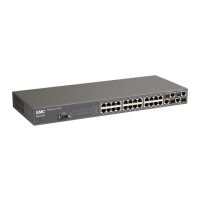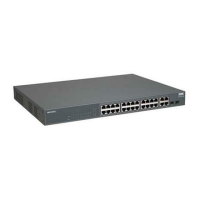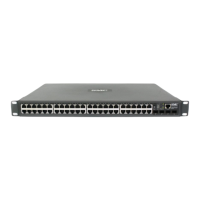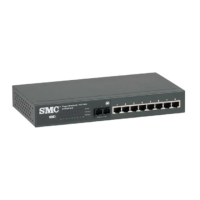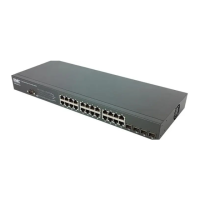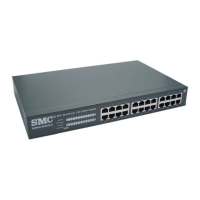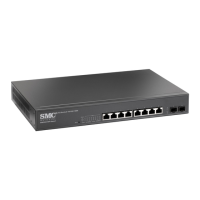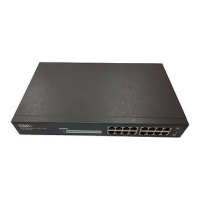C
ONFIGURING
THE
S
WITCH
3-160
To configure private VLANs, follow these steps:
1. Use the Private VLAN Configuration menu (page 3-161) to designate
one or more isolated and community VLANs, and the primary VLAN
that will channel traffic outside of the VLAN groups.
2. Use the Private VLAN Association menu (page 3-163) to map the
secondary (i.e., isolate and community) VLAN(s) to the primary
VLAN.
3. Use the Private VLAN Port Configuration menu (page 3-165) to set
the port type to promiscuous (i.e., having access to all ports in the
primary VLAN), isolated (i.e., having access only to promiscuous ports
in its own VLAN), or host (i.e., having access restricted to community
VLAN members, and channeling all other traffic through a
promiscuous port). Then assign any promiscuous ports to a primary
VLAN and any host ports a secondary VLAN (i.e., community
VLAN).
Displaying Current Private VLANs
The Private VLAN Information page displays information on the private
VLANs configured on the switch, including primary and community
VLANs, and their associated interfaces.
Command Attributes
• VLAN ID – ID of configured VLAN (1-4094, no leading zeroes).
• Primary VLAN – The primary VLAN with which the selected VLAN
is associated. (Note that this displays as VLAN 0 if the selected VLAN
is itself a primary VLAN.)
• Ports List – The list of ports (and assigned type) in the selected private
VLAN.
